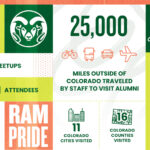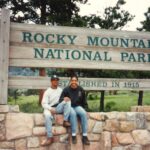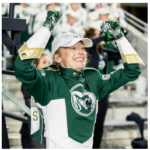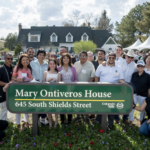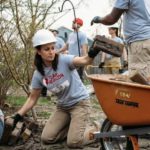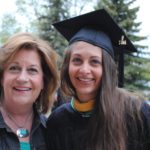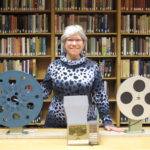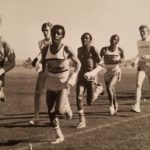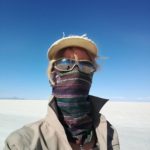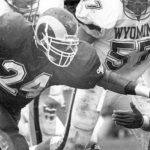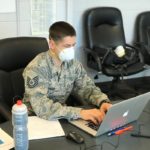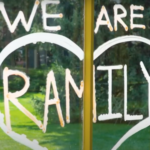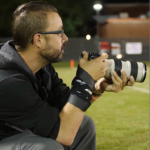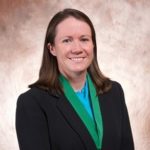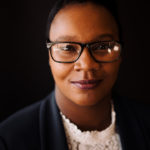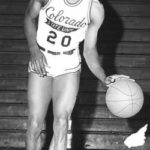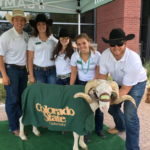By Angela Hayes, Ph.D.
Katherine Brooks, Executive Director of Career Services at Vanderbilt University and author of the book, You Majored in What? Designing Your Path from College to Career, has what I consider to be an excellent strategy for writing a cover letter-especially if you don’t feel completely qualified for the job to which you are applying. She recommends using a SWOT analysis. A SWOT analysis is commonly used in businesses and organizations as part of their strategic planning processes. It helps them to assess their position in the marketplace and map out strategies to move forward.
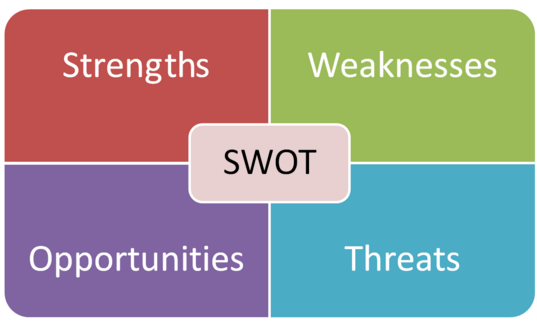 One of the great things about using a SWOT analysis to write your cover letter is that it postpones the anxiety of actually writing the cover letter itself. In filling out the SWOT analysis, you are basically writing the cover letter without realizing that you’re doing it. I’ve not yet met anyone who enjoys writing cover letters, so this is a real plus.
One of the great things about using a SWOT analysis to write your cover letter is that it postpones the anxiety of actually writing the cover letter itself. In filling out the SWOT analysis, you are basically writing the cover letter without realizing that you’re doing it. I’ve not yet met anyone who enjoys writing cover letters, so this is a real plus.
Start by placing four boxes on a piece of paper and label the boxes Strengths, Weaknesses, Opportunities and Threats.
In the Strengths box, write down the most relevant strengths that you have that fit the position. You’ll usually want to focus on three to four main strengths, including both hard and soft skills. Include supporting examples.
In the Weaknesses box, think about what aspects of the job that you would find challenging due to your current set of skills and experience. Think about what concerns an employer might have about you in this position and consider how you might counter those concerns. Write down a sentence or two that effectively argues against the concerns an employer might have about your candidacy. You could, for example, write a few sentences about your closely related transferrable skills. Another option is to start learning whatever skills the position description lists that you don’t yet have, and then talk about your training in the letter. There are a wide variety of places to get online training very easily. For example, http://www.Lynda.com is now free on the home page of most public libraries.
In the Opportunities box, you’ll want to write down why you are interested in the company based on your research. What excites you about the company? How could your skills/experience help the company? Are there special skills (like your fluency in a foreign language) that might interest them since they have just opened a new office in a country that predominately speaks that language? Also talk about the opportunities that you see in the industry in general, and how your background could help assist with the growth of the industry in their company specifically.
In the Threats box, think about things that are outside of your control. For example, you might have an English degree and know that you will be going up against those with a Marketing degree for a marketing job. Write a few sentences about why you should be hired for the marketing role. Another threat might be that you are applying for a job in Los Angles and you live in Cleveland. Write a few sentences about your plans to move to Los Angles (if you intend to) so that they can think of you as a local candidate. Companies are less likely to fly in candidates if they have a strong pool to choose from within the city. Write a sentence or two about any other potential threats and how you would overcome them.
Now it’s time to put this all together. You will likely have the makings of a very strong cover letter. Start by taking a look at what you’ve written and begin organizing it into paragraphs until you feel that the information is presented well. Create a strong opening and closing sentence.
If you’d like me to review a cover letter, or any of your application documents, feel free to e-mail them to me at Angela.Hayes@colostate.edu.

ANGELA HAYES serves as the Associate Director of Alumni and Online Career Engagement. Prior to coming to CSU, she worked as the Assistant Director of Alumni and Graduate Student Career Services at Kansas State University. She has a B.S. in psychology, an M.S. in industrial/organizational psychology and a Ph.D. in professional coaching and human development. She’s a nationally Board Certified Coach and a nationally Certified Health and Wellness Coach.
She has a passion for helping others to see their lives as full of possibilities and un-tapped potential. She views changes/transitions (both planned and unplanned) as opportunities for individuals to discover and plan out what they really want from their careers and lives.

